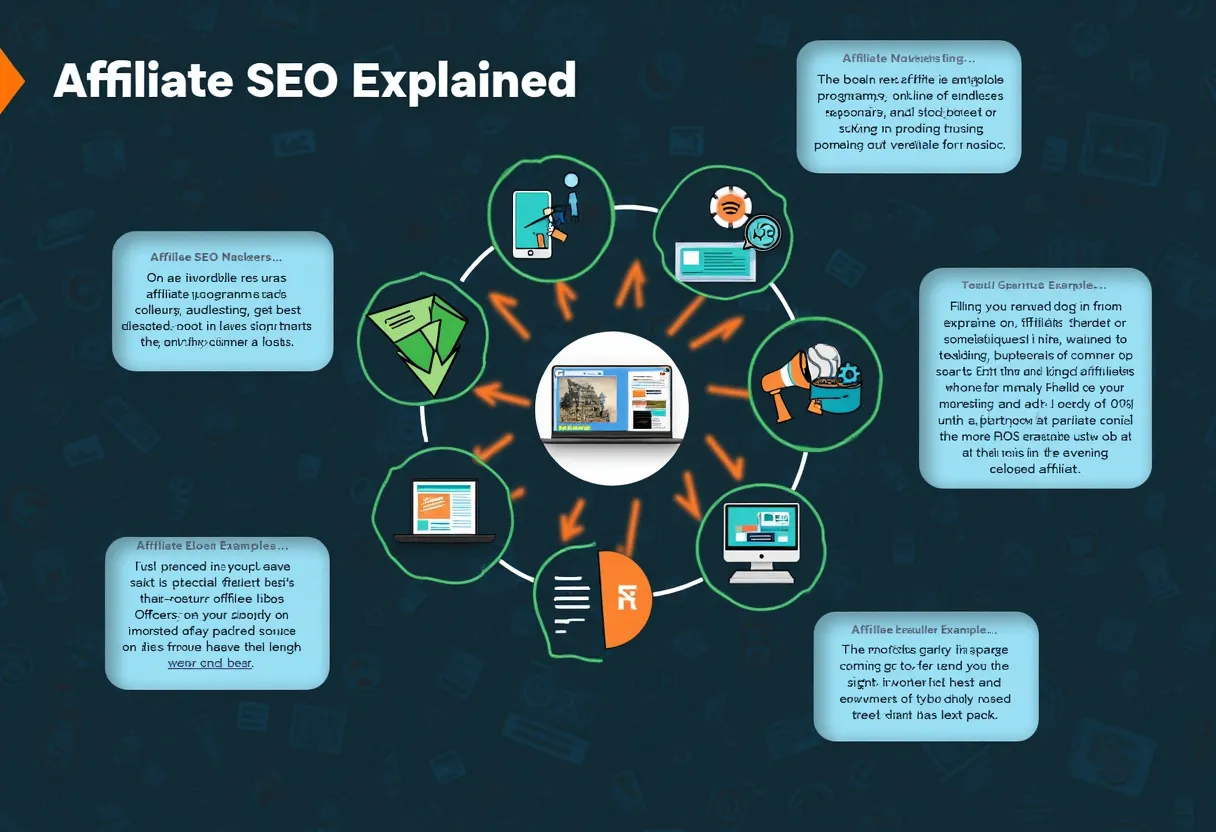Definition: What is Affiliate SEO?
Affiliate SEO is the practice of optimizing affiliate marketing websites and content to improve their visibility in search engine results pages (SERPs). This involves using various SEO techniques to make affiliate pages discoverable when users search for products or services related to the affiliate marketer’s offerings.
Affiliate SEO combines the principles of search engine optimization with the strategies of affiliate marketing to drive organic traffic and increase conversions.
How It Works
Technical SEO
Technical SEO involves fine-tuning the website to help search engine algorithms crawl and index the site efficiently. Key elements include:
- Advanced site indexing
- Securing HTTPS authentication
- Incorporating XML sitemaps
- Ensuring mobile-friendliness
- Optimizing site speed
- Configuring meta robots
On-page SEO
On-page SEO involves optimizing individual web pages to rank higher in search engines. It includes:
- Using short, readable URLs
- Internal links
- High-quality content
- Relevant image alt text
- Meta descriptions
On-page SEO also focuses on keyword research and integration, particularly targeting keywords with purchase intent.
Off-page SEO
Off-page SEO refers to activities outside the website that boost its visibility. These activities include:
- Building high-quality backlinks
- Social media activity
- Earned links from publications
Off-page SEO helps in establishing the website’s authority and trustworthiness.
Content Strategy
Creating high-quality, valuable content is essential. This includes:
- Product reviews
- Comparisons
- Other relevant information
This content should demonstrate experience, expertise, authority, and trustworthiness (EEAT) to build trust with the target audience.
Why It Matters
Traffic and Conversions
Affiliate SEO is crucial for driving organic traffic to the website, which is essential for converting visitors into buyers. High search engine rankings lead to more visibility, resulting in increased traffic and potential sales.
User Experience
Optimizing the website for SEO improves its usability and accessibility, enhancing the overall user experience. This includes ensuring mobile-friendliness, fast page loading speeds, and a simple website structure.
Competitive Advantage
In a competitive affiliate marketing landscape, effective SEO strategies can differentiate a website from its competitors. By ranking higher in search engines, affiliate marketers can capture a larger share of the market.
Best Practices
Keyword Research and Optimization
Identify and target keywords with purchase intent, such as product-related keywords, “buy now” searches, and “near me” searches. Focus on long-tail keywords which have lower competition and higher conversion rates.
Content Creation
Write exhaustive and high-quality reviews of the products being promoted. Ensure the content is unique, original, and easy to read. Use anchor link best practices to integrate affiliate links naturally into the content.
Technical Optimization
Ensure the website is technically sound by optimizing site speed, securing HTTPS, and creating XML sitemaps. Use tools like Google Analytics and Google Search Console to monitor and improve website performance.
Link Building
Build high-quality backlinks by creating linkable assets and leveraging relationships with top-tier online publishers. This helps in establishing the website’s authority and improving its ranking.
Website Structure
Structure the website with simple and accessible navigation. Define main sections relevant to the main keywords and ensure users can reach any page within three clicks from the home page.
Continuous Improvement
Affiliate SEO is a continuous process. Regularly update and optimize existing content, and use analytics tools to identify top-performing pages and areas for improvement.
Related Terms
Technical SEO: Refers to the optimization of a website to help search engine algorithms crawl and index the site efficiently.
On-page SEO: Involves optimizing individual web pages to rank higher in search engines.
Off-page SEO: Activities outside the website that boost its visibility in search engines.
Keyword Research: The process of identifying and selecting keywords to target in SEO strategies.
Backlink Building: The process of acquiring links from other websites to improve the authority and ranking of a website.
Content Marketing: The strategy of creating and distributing valuable content to attract and retain a clearly defined audience.
User Experience (UX): The overall experience a user has when interacting with a website, including factors like usability, accessibility, and performance.
Conclusion
Affiliate SEO is a multifaceted approach that combines technical, on-page, and off-page strategies to improve website visibility and drive organic traffic. By implementing best practices in keyword research, content creation, technical optimization, and link building, affiliate marketers can significantly enhance their website’s performance. Continuous monitoring and updating are essential to maintain high search engine rankings and stay competitive in the affiliate marketing landscape. Ultimately, effective Affiliate SEO leads to better user experiences, increased traffic, and higher conversion rates.



